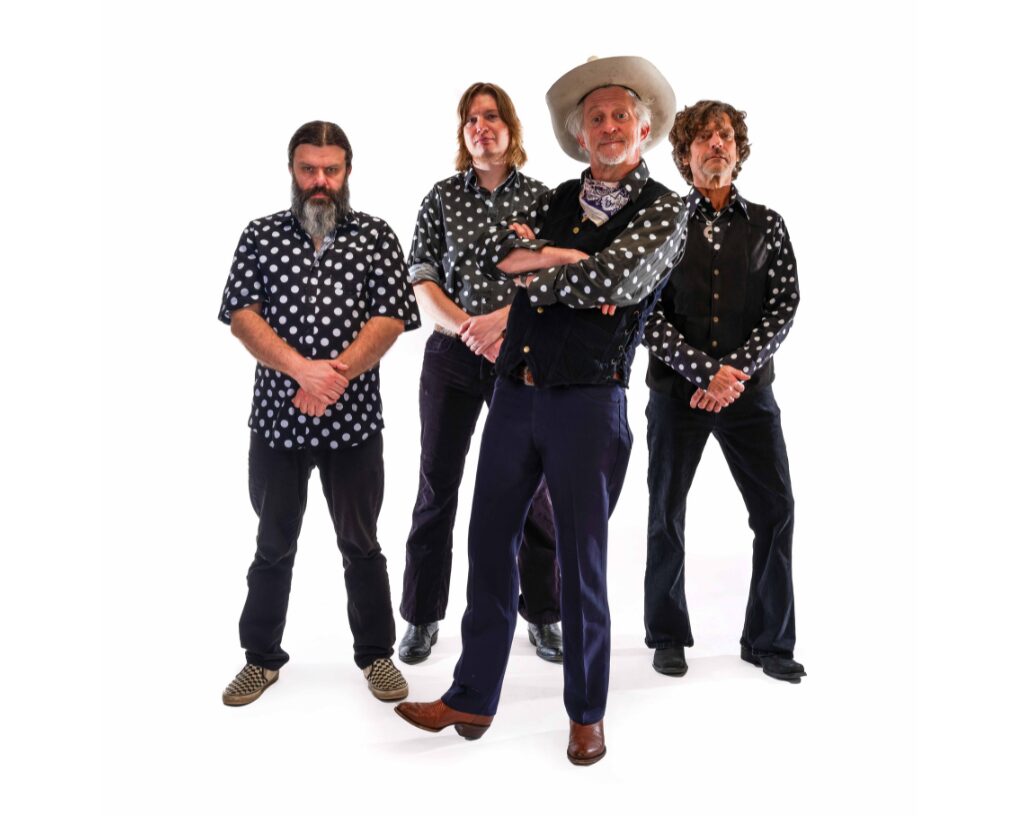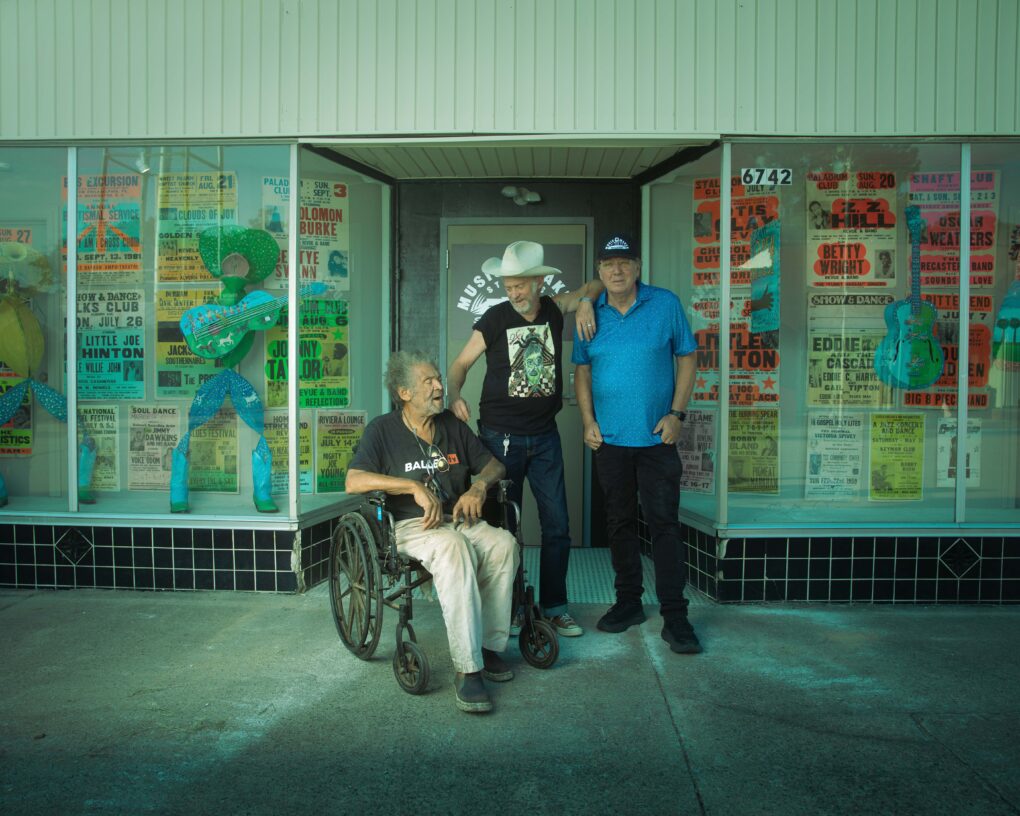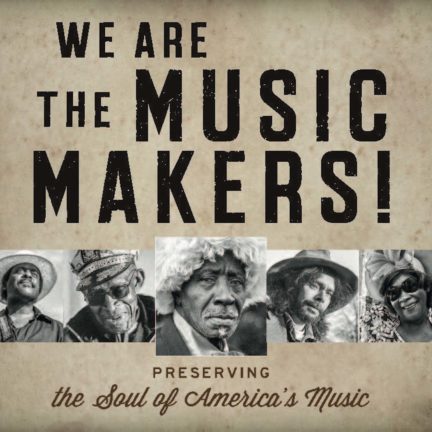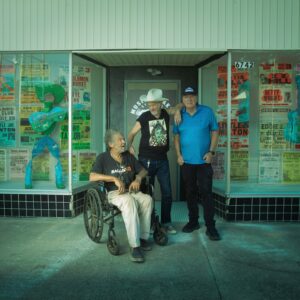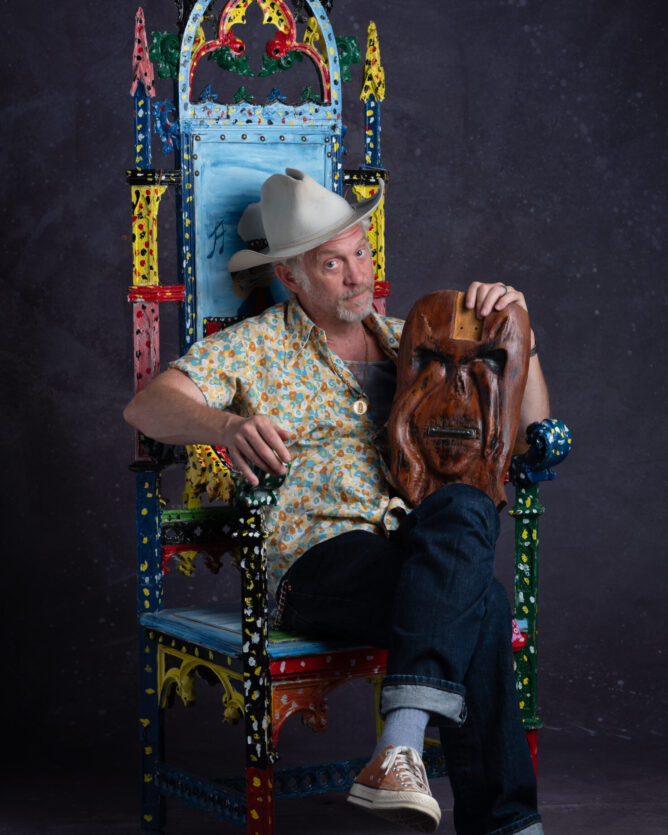
Jimbo Mathus
BluesSquirrel Nut Zippers co-founder and all-around roots legend Jimbo Mathus has worked with a murderer’s row of Music Maker Foundation musicians, both in the studio and onstage.
Written by Grayson Haver Currin
On a Saturday afternoon in a Denver hotel room, Jimbo Mathus is handling a handful of musical projects all at once. He is here for two nights of big shows with Squirrel Nut Zippers, the nuevo swing institution he cofounded 30 years ago in Chapel Hill. The notebook of songs for their new record sits on his desk, alongside charts of tunes he’s writing for Kelley Breiding, a veteran folk singer on the edge of the Appalachian Mountains. Soon after these dates are done, he’ll leave his home in Mississippi for Music Maker’s own recording studio in Fountain, North Carolina, to helm Breiding’s new album. He is, after all, Music Maker’s in-house producer—a role for which he’s been preparing for 57 years.
“I’ve learned that I’m a really good producer,” says Mathus, grinning in his denim overalls and a tie-dye tank top. “I’m using my whole toolkit, everything I’ve learnt, and that’s what I love about it. I’m the guy I set out to be.”
Mathus’ path to his position has been a circuitous one. Raised in Mississippi with Charley Patton’s daughter, Rosetta, as a nanny, Mathus was a star student and an Eagle Scout who was accepted into the Naval Academy. But just before high school ended, a friend studying philosophy passed him a copy of Zen and the Art of Motorcycle Maintenance, which rearranged his entire perspective. He too enrolled at Mississippi State to study philosophy, started some bands, and discovered the redirection of psychedelics.
There were some lost years, some stints working on riverboats, and eventually his arrival in Chapel Hill, where he spent his days in the town’s esteemed libraries and his nights playing indie rock. But Squirrel Nut Zippers not only gave him glimpses of stardom but also allowed him to make music outside of norms and expectations—and, in turn, create a career and legacy of doing just that.
Mathus moved back to Mississippi after the turn of the century and continued his work as a vital roots music advocate there, whether as a band leader, studio head, or sideman. He befriended legendary producer, instrumentalist, and jester Jim Dickinson, inheriting his experience and advice about how to work and lead. (“Don’t let the goat out of the bag” ran Dickinson’s adage about studio restraint.) And his relationship with Fat Possum Records founder Bruce Watson led to his first encounters with Music Maker, especially Ironing Board Sam’s 2015 album, Super Spirit. He immediately understood the mission: “Their system is an ideal environment for artists, for record production, for keeping this musical vision alive in the modern world,” he says.
“Their system is an ideal environment for artists, for record production, for keeping this musical vision alive in the modern world.”
Before Music Maker opened its Fountain studio in 2024, Tim Duffy called Mathus to ask if he might want to work on some records there. Mathus upped the ante when he learned about the space, saying he wanted to work on every record there. He has since become integral to the entire process, not only helping artists sort through backlogs of songs to pick their best material but also dipping into his own voluminous songbook to offer up tunes. He writes new ones to fit their personality, arranges to give the performer the most room on tape, and shifts during sessions between drums, keys, guitar, life coach, and whatever else is needed. He’s even been known to do a little graphic design if needed.
“We’ve got this whole pipeline for making records, which is a producer’s dream, like all my heroes in Stax and Motown,” Mathus says. “We’ve got the whole thing, man, a dream come true.”
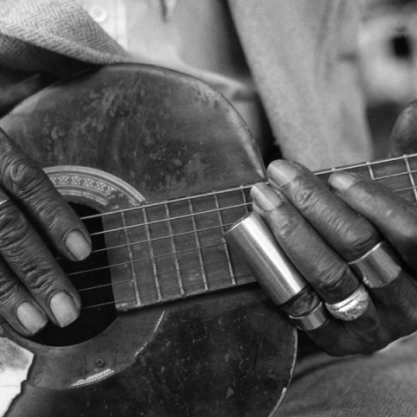
Get involved
& give back
The Music Maker Foundation is a 501(c)(3) nonprofit organization that depends on thousands of supporters. Together, we work to meet the day-to-day needs of the artists who create traditional American music, ensure their voices are heard, and give all people access to our nation’s hidden musical treasures. Please contribute or shop our store today.

